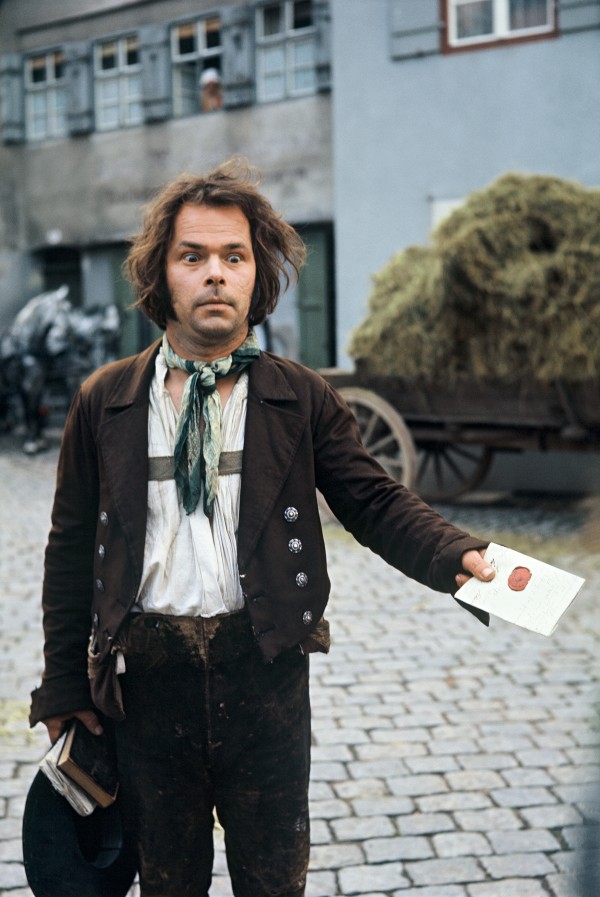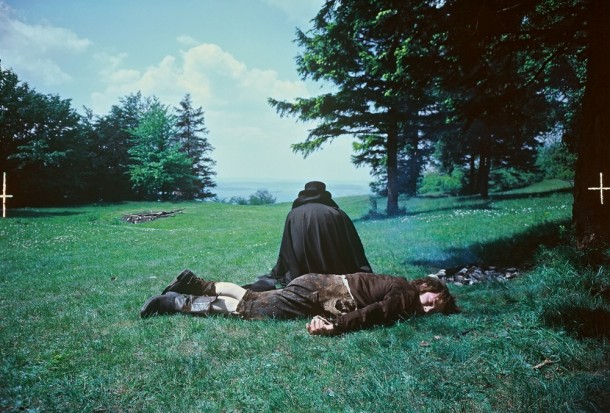Dir/scr: Radu Jude. Romania, Luxembourg, France, Croatia. 2023. 163mins
Radu Jude is emerging as one of the most challenging directors on the European scene at the moment and his latest outing, described as ’part comedy, part road movie, part montage’, looks at the eternal theme of exploitation in the workplace and otherwise.
Not one for a minimalist title (apart from his debut Afterim): his recent outings have been as garrulous as their content: I Do Not Care if We Go Down in History as Barbarians, The Happiest Girl in the World and Bad Luck Banging or Loony Porn – and have discombobulated the best of us. Jude continues the trend with Do Not Expect Too Much From The End Of The World a multilayered comedy concoction, named after a maxim by the Polish poet Stanislaw Jerzy Lec.
Jude once again takes history by the scruff of the neck to come to some thought-provoking realisations on how the goal posts have moved, and are constantly being manipulated in modern life through fake news. The past is invariably viewed as rosier than the more aggressive present and reflected here in grainy monochrome, in contrast to colour.
The action centres on the fraught everyday life of spirited production assistant Angela Raducanu (Ilinca Manolache), not unlike Kalia in Animal (another Locarno Golden Leopard contender), she is besieged on all fronts: over-worked, underpaid, and sometimes not even paid at all.
But Angela is certainly no fool. Careening through the streets of Bucharest in a mini van with the radio blaring out a sparky selection of tunes, she is en route to interview people for a safety video commissioned by an Austrian company (headed by Nina Hoss as Doris Goethe). This marketing tool expounds the virtues of taking protective measures. Jude interweaves Angela’s chaotic journey with his customary literary quotations, and excerpts from a film by Lucian Bratu in which the heroine (Dorina Lazar) searches for love in the sexist Ceausescu-era Bucharest of the early eighties (this segment goes by the title of ANGELA: a conversation with an 1981 film).
To gee herself up Angela posts videos pretending to be Andrew Tate taking off Putin. There are clearly analogies between present day Angela and her character from the past. And today’s Angela has great fun lampooning contemporary Romania in a jittery, broad brush, freewheeling approach not dissimilar to that of Bad Luck Banging, which has become Jude’s style in recent years. Nothing has really changed since Lazar’s era but social media has just amplified all the negativity and misogynist attitudes through its portals of Twitter and TikTok.
A character called Ovidiu, a wheelchair user, is the focus of part B. His testimony will feature in the safety video but his claims are then ‘groomed’, in one take, to provide sufficient evidence for him to claim compensation from the Austrian company. But will they believe him or even take him seriously? This moment is the most revealing of Jude’s entire film. Exhausting but certainly fizzing with energy. MT
Now On BFI PLAYER 2024


